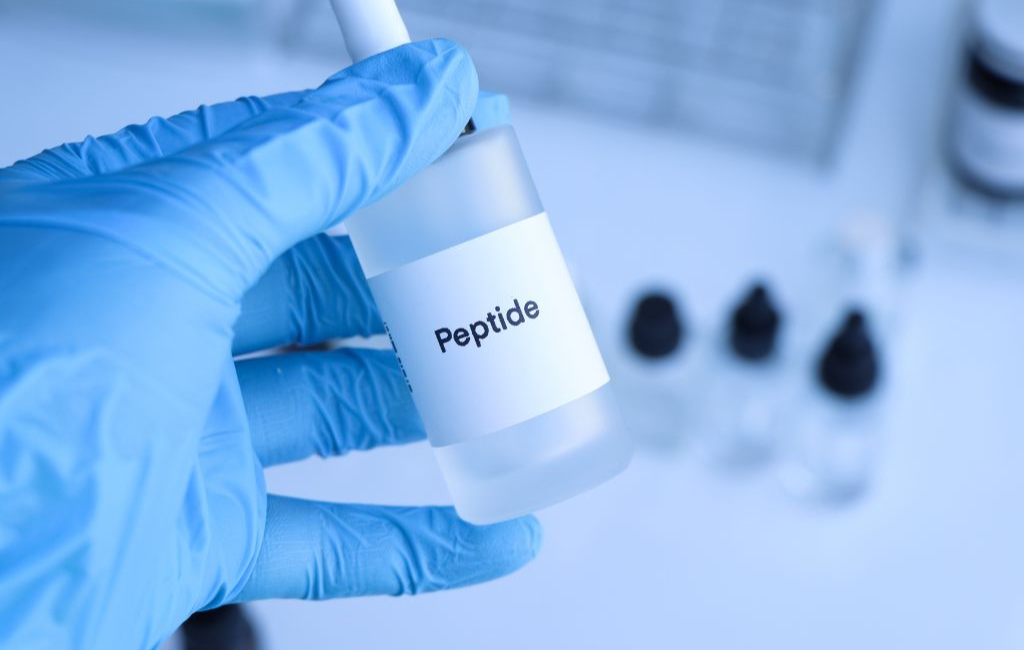Muscle Growth Boost with Peptides
In the pursuit of enhanced muscle growth, athletes and fitness enthusiasts are constantly exploring new methods to optimize their results. One such method gaining attention is the use of peptides. These short chains of amino acids have shown promise in promoting muscle growth and recovery. This article delves into the science behind peptides, their benefits, and how they can be effectively integrated into a fitness regimen.
Understanding Peptides
Peptides are compounds consisting of two or more amino acids linked in a chain. They play a crucial role in various biological functions, including hormone production, immune response, and tissue repair. In the context of muscle growth, certain peptides can stimulate the release of growth hormone, which is vital for muscle development and recovery.
Types of Peptides for Muscle Growth
- Growth Hormone Releasing Peptides (GHRPs): These peptides stimulate the pituitary gland to release growth hormone. Examples include GHRP-2, GHRP-6, and Ipamorelin.
- Growth Hormone Secretagogues (GHSs): These are compounds that promote the secretion of growth hormone. CJC-1295 and Sermorelin are popular choices.
- Insulin-like Growth Factor (IGF) Peptides: IGF-1 and its derivatives, such as IGF-1 LR3, are known for their anabolic effects, promoting muscle growth and repair.
Benefits of Peptides in Muscle Growth
The use of peptides offers several advantages for those looking to enhance muscle growth. These benefits include:
- Increased Muscle Mass: By stimulating growth hormone release, peptides can lead to increased muscle protein synthesis, resulting in greater muscle mass.
- Enhanced Recovery: Peptides aid in faster recovery by promoting tissue repair and reducing inflammation.
- Improved Fat Loss: Some peptides can enhance fat metabolism, helping to achieve a leaner physique.
- Better Sleep Quality: Improved sleep is a side benefit of certain peptides, which can further aid recovery and growth.
Scientific Evidence and Case Studies
Research on peptides and their effects on muscle growth is ongoing, with several studies highlighting their potential benefits. A study published in the “Journal of Clinical Endocrinology & Metabolism” demonstrated that GHRP-6 significantly increased growth hormone levels in healthy adults. Another study in “Growth Hormone & IGF Research” found that CJC-1295 increased IGF-1 levels, promoting muscle growth and fat loss.
Case studies of athletes using peptides have shown promising results. For instance, a bodybuilder reported significant muscle gains and improved recovery times after incorporating IGF-1 LR3 into his regimen. These anecdotal reports, combined with scientific research, suggest that peptides can be a valuable tool for muscle growth.
Integrating Peptides into a Fitness Regimen
For those considering peptides, it’s important to approach their use with caution and knowledge. Consulting with a healthcare professional or a knowledgeable coach can provide guidance on the appropriate peptides and dosages. Here are some tips for integrating peptides into a fitness routine:
- Start with a Low Dose: Begin with a low dose to assess tolerance and gradually increase as needed.
- Monitor Progress: Keep track of muscle gains, recovery times, and any side effects to adjust the regimen accordingly.
- Combine with Proper Nutrition and Training: Peptides should complement a well-rounded diet and exercise program for optimal results.
- Stay Informed: Keep up with the latest research and developments in peptide use for muscle growth.
Potential Risks and Considerations
While peptides offer potential benefits, they are not without risks. Possible side effects include water retention, joint pain, and increased appetite. It’s crucial to source peptides from reputable suppliers to avoid counterfeit products. Additionally, the regulatory status of peptides varies by country, so it’s important to be aware of legal considerations.
Conclusion
Peptides present an intriguing option for those seeking to enhance muscle growth and recovery. With scientific backing and anecdotal success stories, they offer potential benefits when used responsibly. By understanding the types of peptides available, their benefits, and how to integrate them into a fitness regimen, individuals can make informed decisions about their use. As with any supplement, careful consideration and professional guidance are key to maximizing results and minimizing risks.
